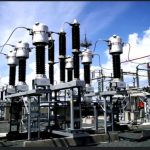...To get all news updates, Join our WhatsApp Group (Click Here)
Also Join our WhatsApp Channel (Click Here)
On July 11, 2024, Nonye Ayeni, ED/CEO at the Nigerian Export Promotion Council represented her supervising minister, Dr. Doris NkirukaUzoka-Anite, the honourable Minister of Industry, Trade, and Investment at the launch of Her AfCFTA in Lagos.
In the speech she read at the august gathering of technocrats and entrepreneurs, Mrs. Ayeni said “It gives me great joy to join such a distinguished gathering in calling attention to two issues that are very dear to my heart – trade and female participation. I want to begin by thanking the UNDP for this laudable initiative and formal launch of #HerAfCFTA which is proceeding under the theme: Breaking Barriers: Positioning women to harness Africa’s trade opportunities…HerAfCFTA underscores the importance of collective effort by calling on all development actors to invest in securing a prosperous future for women in the unified African market.”
At the end of the prepared speech, the ED/CEO of NEPC spoke extempore for a few minutes and as she prepared to leave the stage she dropped a final sentence that set the hall agog, with participants rising to their feet to give a rousing and rapturous applause.
What did she say to get her audience clapping? NonyeAyeni delivered a short quip credited to Margaret Thatcher aka ‘Iron Lady’, who was the first female British Prime Minister and the longest serving PM for over 150 years.
Thatcher is credited with sayingthat –“Sometimes, the best man for the job is a woman!”
Diversification of the non-oil export sector is a key policy plank of President Bola Ahmed Tinubu administration’s “Renewed Hope Agenda” and in giving a fillip to diversification, he chose perhaps, on purpose and maybe not, two eminently qualified women who cut their teeth as bankers and who both rose to Group Treasurer position at Zenith Bank.
Uzoka-Anite would subsequently become Commissioner for Finance and Coordinating Economy in Imo state while NonyeAyeniwas appointed pioneer Managing Director of Signature bank.
These two amazons versed in the intricacies of banking and treasury management and eloquent in the language of business and finance have received presidential imprimatur to develop and promote trade, investment and non-oil exports.
After one year in the saddle, it seems apposite to interrogate and evaluate their impact especially their focus on ensuring that Nigerian women entrepreneurs thrive in the international trade arena.
Dr. Uzoka-Anite upon resumption was clear in her approach. Her strategy is encapsulated under the “Industrial Revitalization Plan” which pays strong emphasis on the return of productive capacity as a catalyst for diversifying the Nigerian economy away from our mono-cultural dependence on oil.
Since her appointment she has made it her driving passion to seek investments and open up collaborations in growing Nigeria’s industrial capacity. Her drive seems anchored on the realization that anything built to last begins with a solid foundation.
Information is a globally recognized currency in our digital and connected world. This must have informed Dr. Uzoka-Anite’s establishment of the Trade Intelligence Unit in collaboration with other MDAs. The overarching objective is to map data and use same to attract FDI, expand the foreign exchange revenue base, create jobs and catalyse the economy.
Revitalizing industries in line with her encompassing strategy, requires funds and to meet that need, the honourable minister flagged off the Presidential Grant, Loan Scheme and Palliative Programme with the objective of facilitating financial support for businesses. Again, her ministry is working with a partner, the Bank of Industry to administer and deploy the funds.
Attending her first United Nations General Assembly (UNGA) as Minister, Uzoka-Anite announced the launch of the National Talent Exchange Programme (NATEP) which will create a pipeline of trained and certified artisans who will be in the vanguard of industrial revitalization just as happened in Taiwan in the 70s and 80s. Working in concert with another partner; the Industrial Training Fund (ITF),she noted that NATEP is expected to create 10 million jobs.
One year later on October 10, 2024, the minister posted on X formerly Twitter. “I am delighted to announce that the 1st cohort of the Federal Government’s National Talent Export Programme (@NATEPNigeria) is set to depart for Kuwait! This initiative, one of the key pillars of our commitment to creating global opportunities for Nigerians, has now unlocked 329 positions in various sectors, including Engineering, Healthcare, IT, and more.”
At this year’s UNGA, she signed an MOU with U.S. EXIM to enhance trade financing opportunities by providing easier access to capital for Nigerian businesses engaging in international trade.
NonyeAyenihadan opportunity to present a score cardon August 28, 2024 when she briefed the press on the H1 2024 performance of the non-oil export sector and what came across was a focused, intentional and measurable agenda for boosting trade and the non-oil sector.
She announced to her audience that Nigeria raked in $2.7bn from non-oil exports in the first half of 2024 representing a 6.26 percent increase compared to $2.53 billion earned in the same period in 2023.
The growth was attributed to what she said were “ongoing efforts to grow the non-oil sector and diversify the economy from the mono-cultural dependence on oil in alignment with the Industrial Revitalization Plan of the Honourable Minister of Industry, Trade and Investment, Dr Doris Uzoka-Anite and the Renewed Hope Agenda of His Excellency, President Bola Ahmed Tinubu (GCFR).”
She also cited growth in many areas – a total of 211 different products were exported in H1 2024 with the top 3 products – cocoa beans, urea/fertiliser and sesame seeds – contributing 23.18 percent, 13.78 percent and 11.04 percent of the total non-oil exports for the period indicating in her words “a shift from traditional agricultural commodities to more semi-processed and manufactured goods.”
In H1 2024, Nigeria’s non-oil products were exported to 122 countrieswith total volume put at3,834,333.83 metric tonnes. The exporters utilized 19 exit points made up of Seaports, International Airports, and Land Borders.
Under her watch and with the trade facilitation championed by the minister of Trade and Investments, the Nigeria Customs Service has designated Lilypond Terminal as a non-oil export terminal thus easing port processes.
Since becoming CEO of the council, Ayeni has championedfresh initiatives that have contributed to the growth of the non-oil export sector and these include “Operation Double Your Exports” and “Export 35 Redefined” through which the Council has selected the top 20 agricultural products to focus on. In January 2024, Mrs. Ayeni launched NEPC CONNECT, the council’s result-driven customer service team ensuring seamless interaction between exporters and the Council.
While noting that there is enormous potential for growth, she announced that NEPC is making sure that the potential is realised by supporting exporters from the farm gate to the export terminal.
This has seen the council providing hybrid seedlings and agricultural inputs for improved productivity. The pilot was launched in Jigawa state onOctober, 8 2024. The choice of Sesame and Hibiscus is predicated on the fact that the global Hibiscus flower and Sesame seed market size was estimated at $7.44 billion in 2023 and is expected to reach $11.15 billion by 2032 and there has been a boost in exports and revenue since NEPC signed an MOU with Mexico in October 2023.
Working with the World Trade Organisation (WTO), the NEPC launched the Standard Trade Development Facility aka STDF 845 project in March 2024. The focus is on boosting revenue from cowpea and sesame by significantly reducing the number of rejected cowpea & sesame exports at international borders through better compliance with Maximum Residue Levels of pesticides & avoidance of Salmonella contamination in the targeted value chains.
The council is also providing further support in the areas of capacity training workshops, certifications(Halal, ISO, Organic), labeling and packaging. In H1 2024, 90 capacity-building programmes were held with 10,780 participantsbenefitting.
To facilitate the export process, NEPC under Ayeni’s watch has established Domestic Export Warehouses to streamline and facilitate export cargo consolidation. The council has also launched a brand logo for Shea Nigeria sector and established a business cluster for the Shea sector in Nigeria.
What has NonyeAyeni done to enhance the participation of women in the non-oil export sector? NEPC launched the NEPC-ITC SheTrades partnership to connect more women-owned businesses to global markets while facilitating women empowerment and inclusion in the non-oil export trade.The overarching objective is to enhance the skills, capacity and competitiveness of women while generating employment and export revenues through increased productivity of women-owned businesses.
Vanguard reportTo conclude, it is germane to emphasise the importance of the non-oil export sector in helping Nigeria diversify from over dependence on oil. A of October 14, 2024 referenced comments credited to World Bank Vice President and Chief Economist, Mr. Indermit Gill who spoke at the opening session of #NES30# in Abuja. “In the coming years, Nigeria’s policymakers face three key options. First, prioritize non-oil exports…”
Geo-political and domestic disruptions in the oil and gas value chain continue to impact both output and revenue and non-oil exports should be the game changer. The reasons are not hard to see. Nigeria produces over 1,000 agricultural products & derivatives in commercial quantities and we also boast about 44 minerals. Nothing spells potential more than those and we are lucky to have two tried and tested amazons in the driving seat of the non-oil export trade and diversification train.
**Toni Kan is a PR expert and financial analyst.
You can get every of our news as soon as they drop on WhatsApp ...To get all news updates, Join our WhatsApp Group (Click Here)
Also Join our WhatsApp Channel (Click Here)

















